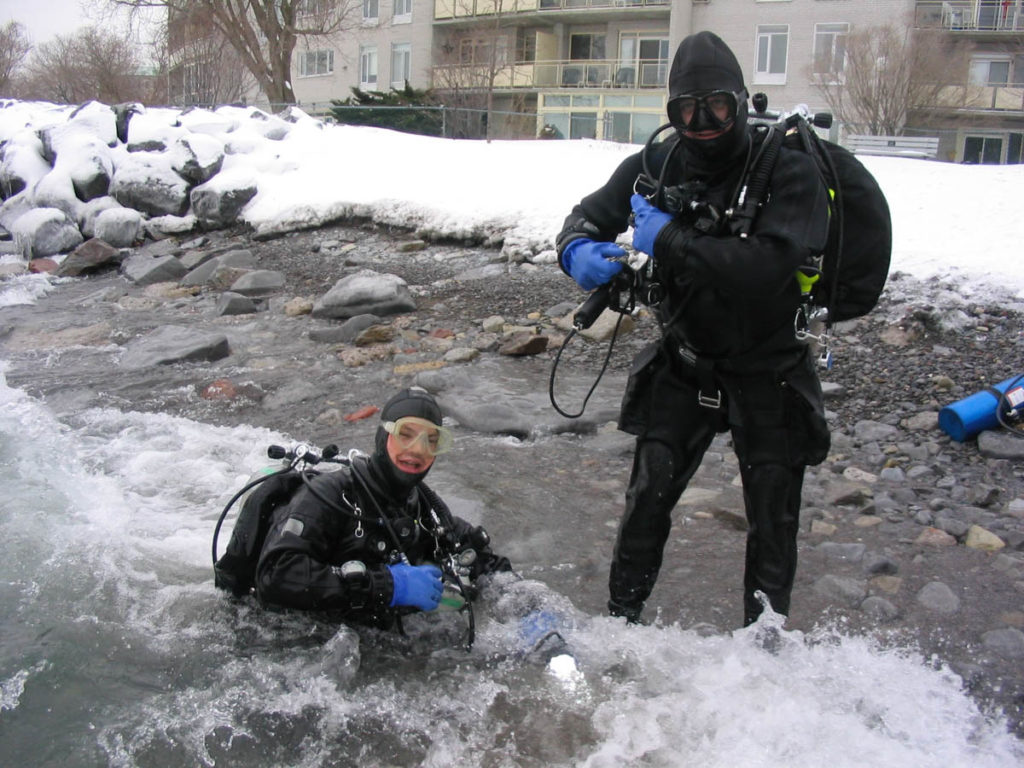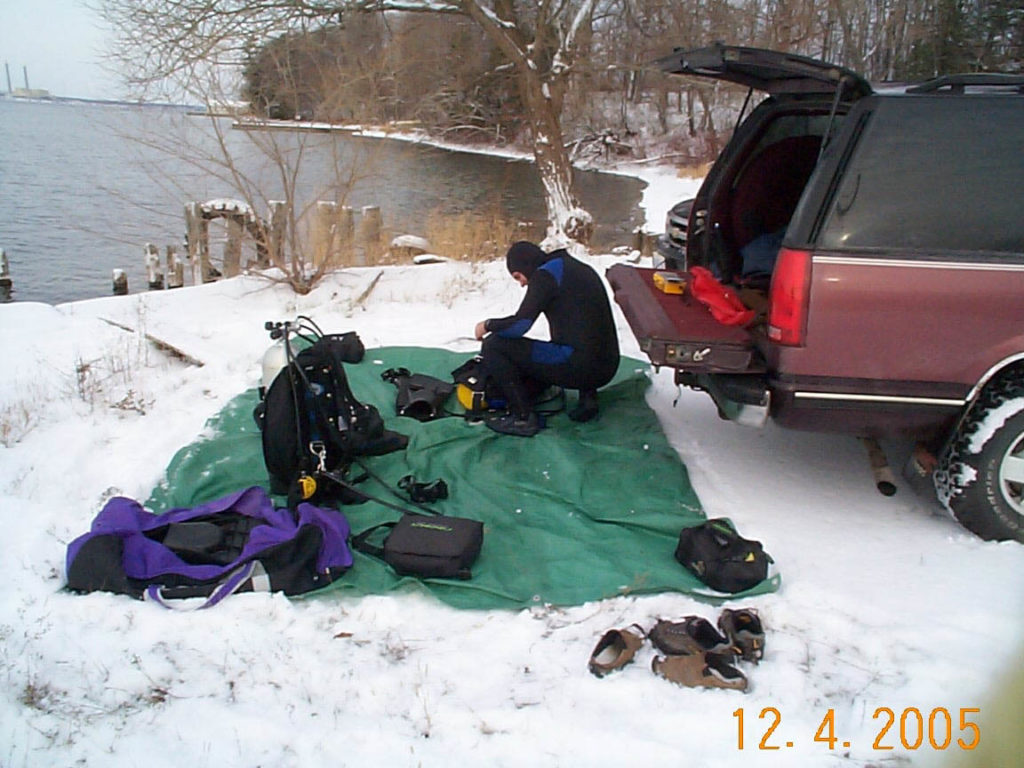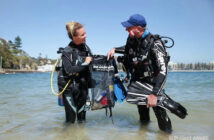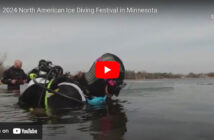With the Canadian diving scene restricted to a few short months of warmer water diving for many, some divers like to extend the diving season well into the cold winter months which involves cold swift currents, freezing temperatures and ice for those enthusiasts.

In Ontario, winter diving can be one of the most enjoyable times to explore underwater. For many reasons, it is fun to get in the water with friends, access can be simpler (usually entering high traffic areas without the traffic), something social to do, good exercise and great visibility.
In most parts of Ontario, we can still dive with the arrival of ice, but it’s not without more risks than we see during the summer and warmer weather months.
Although we don’t have to be afraid of being clipped by a recreational boater or being overheated while getting geared up, there are things to watch for:
- Getting into the water can be a challenge. In summer, divers don’t normally think about cracking their heads open when they walk to the water. In winter, one misstep and you will go down. Before hitting the water, think about making several trips to it and staging the gear. With a set of doubles, stage, camera and a scooter in hand, falling down will get you hurt pretty quickly. Have a plan to deal with slippery conditions or injury.

- Be alert for the thermal difference with what you are wearing. Layer your undergarments. Plan for flooded suits and gloves. In the water, change your dive time accordingly. Have a strategy to get warm after the dive (have a bubble watcher sitting in a vehicle with the heat on).
- In cold water, your dive gear behaves differently than it does during the summer. Make sure you have gear that is designed for diving in cold water. If the air is near to or below freezing temperatures, be careful not to breathe out regulators out of the water. Take redundancy for sources of gas. Even something as simple as an inflator can get stuck open and change your placement in the water column. (actually, a good rule of thumb is to orally inflate to prevent a cold rush of gas which can freeze o-rings creating a free flow of a regulator or uncontrolled inflation of a BC device). Regulator free flows are common. Plan for gear failures.
- Don’t enter the water with ice unless you are properly trained. Even within the winter diving community, there are several types of cold water diving. Open cold water is different then overhead cold water. Solid ice is an obvious overhead dive and proper training needed to execute the dives properly as a direct ascent to the surface is not possible. Partially frozen waterways present a different set of challenges. During a dive, a once open entry can have ice chunks float in over the course of a dive and make an exit impossible. Plan for the type of cold water diving you will be doing.
- Prepare for failures. It isn’t a matter of if, but when, you could have a failure in cold water diving.
- The important factor to remember always :: that at any time you can call the dive for any reason.
Editors Note
Do not use the above suggestions as a substitute for training, skills and proper equipment. Accidents happen. Always dive safely.
Thanks to Corey Phillips for this article from Ontario Diving (divehub.ca)
Follow Corey’s diving adventures on Facebook








